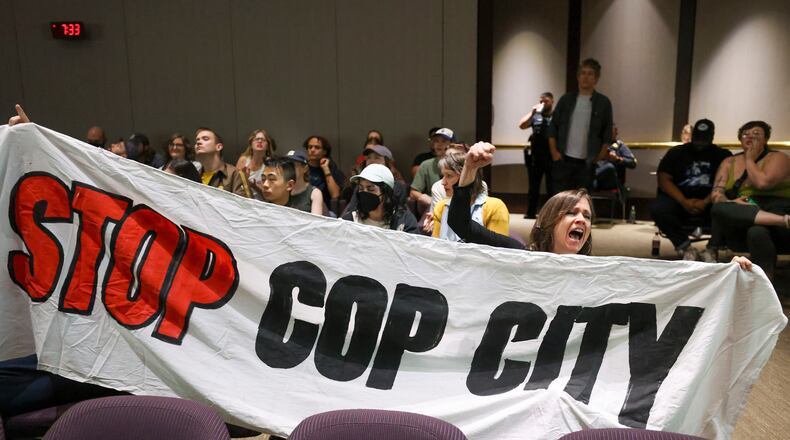A federal court judge has shot down Atlanta’s attempt to reverse a court order that gives opponents of the proposed public safety training center a edge when collecting signatures.
U.S. District Court Judge Mark Cohen denied a motion to delay implementation of his decision to restart the timeline for opponents to collect signatures in an attempt to force the issue to a referendum of city voters.
Late last month, Cohen initially backed plaintiffs by ordering the city of Atlanta drop its requirement that those collecting signatures must swear they are Atlanta residents. The decision also restarts the 60-day timeline in which opponents of the facility must collect more than 70,000 signatures — at least 15% of registered Atlanta voters.
“As discussed in this Court’s prior Preliminary Injunction Order, it is Plaintiffs, not the City, who would suffer irreparable harm by the failure to permit them to gather signatures for the sole reason that they are not City residents,” Cohen wrote.
The original order required the municipal clerk’s office to issue new petitions without the residency requirement which the city did on July 27. All the signatures collected previously are still counted toward the total.
In the motion, the city argued that either the clock should be restarted or previous signatures should not be counted, but not both actions. The combination reignited organizing efforts and gave opponents of the training center a significant boost toward achieving their collection goal.
Cohen wrote in his denial that throwing out previously collected signatures would punish early petitioners.
“Acceding to the City’s demand that all previously collected signatures be thrown out if Plaintiffs are allowed the full 60 days to gather signatures would penalize both the persons who made the effort to gather these signatures as well as the City’s residents who chose to sign the previous City-approved petition,” he wrote.
The federal court judge initially ruled that blocking DeKalb county residents from aiding in the collection effort “imposes a severe burden on core political speech.”
The city said that the judge’s ruling to allow DeKalb residents involvement and extend the petition timeline “will cause chaos and unnecessary expenses for the petition process” and could potentially spark legal action from the state which set statutory residency requirements.
“We continue to agree with the broader precedent set by the Georgia Supreme Court that holds State Law does not authorize referendums to repeal City ordinances,” a spokesperson for the mayor said on Monday.
Lawyers for the city of Atlanta have also argued in filings that the referendum effort in itself is invalid, based off of a 1998 Georgia Supreme Court ruling that tossed out a petition effort in the city of Claxton.
Cohen reminded the city that the question of whether or not the referendum is valid is not before the district court and that the argument suggests the city is more concerned about organizers successfully gathering enough signatures than the residency requirement up for debate.
“The Court again emphasizes that the issue about the actual validity of the referendum petition is not before this Court, and the City’s ultimate determination of the petition’s validity could be challenged in subsequent litigation,” he wrote.
A spokesperson for the ‘Stop Cop City’ referendum effort said that the judge made the right call — for a second time.
“Judge Cohen has once again rightfully dismissed the City’s attempts to disenfranchise its own residents, noting the Dickens administration’s constantly changing story and lack of valid legal arguments,” they said in a statement. “We continue to call on Mayor Dickens to end his attempts at voter suppression and look forward to submitting our petitions.”
About the Author
Keep Reading
The Latest
Featured


